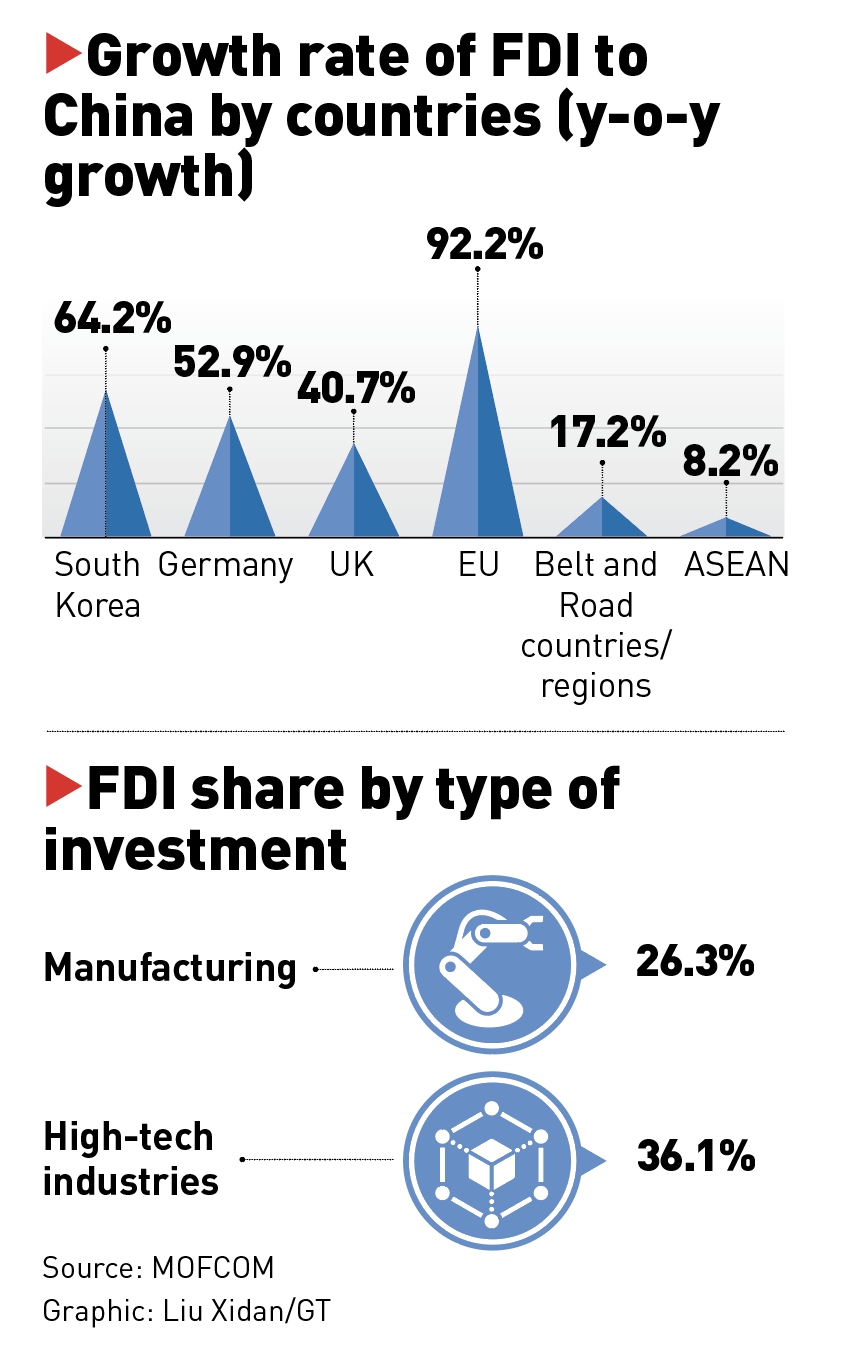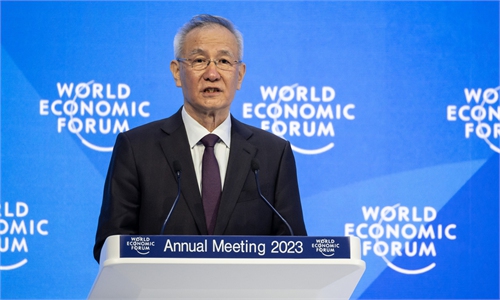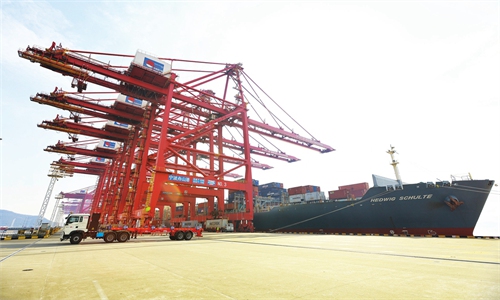Multinational companies are 're-energized' seeing China's economic recovery gain traction
Multinational companies are 're-energized' seeing recovery gain traction


Aerial view of the China-Singapore Suzhou Industrial Park File photo: VCG
Editor's Note:
China moved to downgrade its COVID-19 management in December, and reopened its borders in January. In recent interviews with the Global Times, several representatives from foreign commerce chambers praised the move, anticipating the reopening will bring about more frequent personnel exchanges, which in turn will boost cross-border trade, tourism and investment.
This is the third installment in a series on how China's optimization of anti-COVID response is expected to brighten the economic outlooks of Chinese economy.
Boosted by more signs that China's economic recovery is gaining traction, from surging stocks, hectic consumption during the Spring Festival holidays to the long-awaited tourism boom following optimization of COVID management, representatives of overseas commerce chambers are increasingly upbeat about the "re-energizing" of Chinese market, saying it would bring more benefits to their business in China.
The mostly mentioned change brought by China's grand reopening is resuming exchanges between China and other countries, which will reactivate cross-border tourism, trade and investment, the representatives said.
All of them expressed happiness about the change, adding that more member companies in their chambers will visit China -- a signal of overseas companies' eagerness to reinforce connection with the Chinese market.
Easier personnel flow
"This year will be a busy one for the commerce chambers, enterprises and investment institutions," Loh Wee Keng, chairman of the Malaysian Chamber of Commerce and Industry in China, told the Global Times in a recent interview, revealing business delegations of Malaysian enterprises and government officials will soon come to China.
Personnel exchanges between China and foreign countries were difficult in the past three years due to sharply reduced international flights and strict anti-COVID quarantine requirements.
At expos like Shanghai's China International Import Expo, the number of overseas attendants who flew from overseas was limited because of pandemic restrictions. Likewise, many Chinese businesspeople also had difficulties flying overseas to negotiate businesses.
Now, thanks to China's reopening of borders, the situation is rapidly changing, which makes overseas business trips much easier.
The British Chamber of Commerce (China) said in a statement sent to the Global Times that their members are "particularly encouraged" by the China's decision to open and ease travel restrictions, witnessed by rising business trips between their UK headquarters and China operations.
"Given the significant relaxation of travel restrictions, some members have already started planning global business trips and resuming overseas talent recruitment, which have been halted for most businesses for almost three years," the statement said.
The chamber added that (British) companies are also resuming domestic business trips and being able to meet with their clients, and organize events "with much more certainty".
"The latest policy will bring back some stability in China's business environment over the long term," read the statement.
Victor Cadena, executive vice president of the Mexican Chamber of Commerce in China, told the Global Times that as a result of China's COVID policy optimization, there will be flights between China and Mexico of higher frequency and lower costs, facilitating people's free flow.
Previously, the quarantine and the exorbitant costs of flights made their visits to China difficult, but now everything has change for the better, he said, predicting the economic recovery may gain pace in the second quarter this year.
The Global Times learned earlier that German auto giants are preparing for their senior executives to visit China soon, with many executives planning to attend Auto Shanghai 2023.
The expected growth of personnel flow has raised overseas business people's anticipations about a decent rebounding in economic activities this year, the aforementioned overseas commerce chambers stated.

Graphic: GT
Rebounding biz activity
Some chamber representatives mentioned that they expected a pickup in cross-border travel between China and foriegn countries, as they look for the unleashing of China's tourism consumption power after three years of constraining.
Lu Hai, director of public affairs at the Mexican Chamber of Commerce in China, told the Global Times that they expect tourism and cultural exchanges between China and Mexico will revive quickly in the coming months.
A cross-border tourism boom is mostly likely to follow the seven-day Spring Festival holidays.
According to data provided by online tourism platform ctrip.com, cross-border air tickets orders surged more than 4 times year-on-year during this year's Spring Festival holidays, while orders for overseas tourism hot spots has grown up by more than 60 percent.
Besides tourism, the commerce chambers also anticipated rising trade and other economic activities in China.
In a positive tone, Loh anticipated that that exports of Malaysian small and medium-sized enterprises to China will increase in 2023.
Overseas investment in China is also expected to rise. According to a recent survey conducted by Austcham, a significant majority of member companies intend to continue to invest in the Chinese market and place China among their most favored investment destinations.
"Given the recent warming of bilateral relations, this trend is expected to accelerate," Vaughn Barber, chairman of AustCham China, told the Global Times.
Barber said that many of Austcham's member companies showed strong adaptability despite COVID, which allowed them to become more aligned with the Chinese market. For example, 46 percent of the surveyed companies have localized both their sourcing and sales in China.
Also, more companies are better placed to utilize the China market as a regional hub for expanding their operations internationally, said Barber.
In general, overseas companies and commerce chambers hold relatively optimistic outlook for this year's economic recovery in China, though some of them have reservations about short-term growth because of challenges like increasing coronavirus infections.
The British Chamber of Commerce in China said that although they have seen a tentative step towards resumption of normal business operations, they cautioned the Chinese economy may not start to see sizzling recovery until the second quarter.
"We continue to believe the Chinese market has huge potential for our members. The latest policy move should go a long way to helping unlock that potential," the chamber said.
The Austcham said that thanks to China's reopening, Australian companies in China are becoming increasingly optimistic, in particular for the long run.
China's grand reopening also buoyed sentiment among overseas economists. Standard Chartered chairman José Viñals anticipated that China's economy will be "on fire" in the second half of 2023, a CNBC report noted. A Reuters report anticipated that China's economic growth is likely to rebound to 4.9 percent in 2023, compared with 3 percent growth in 2022.



